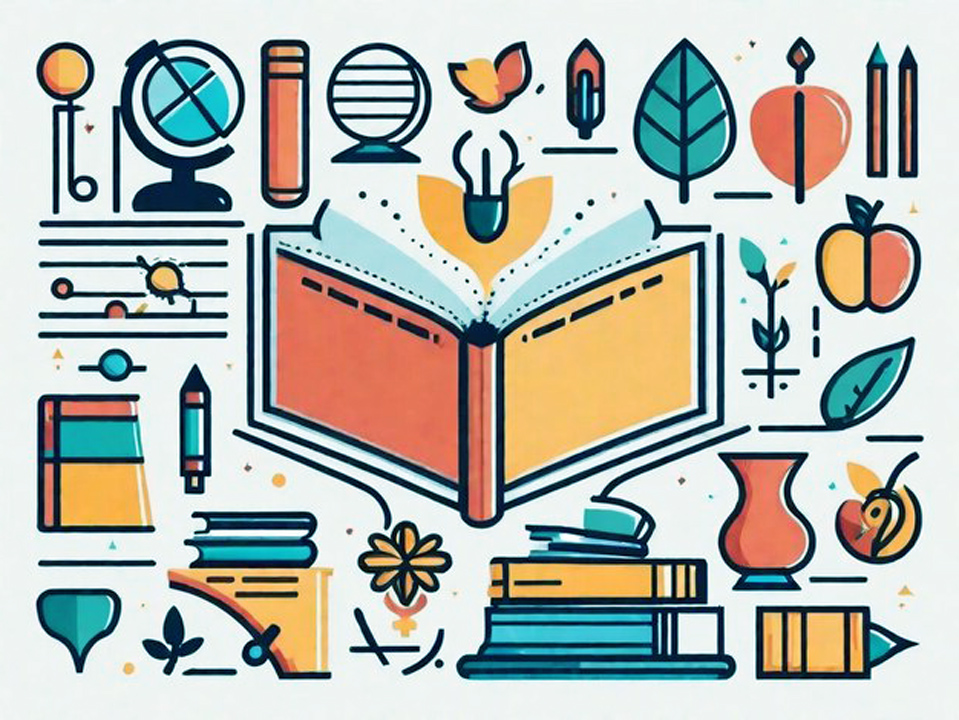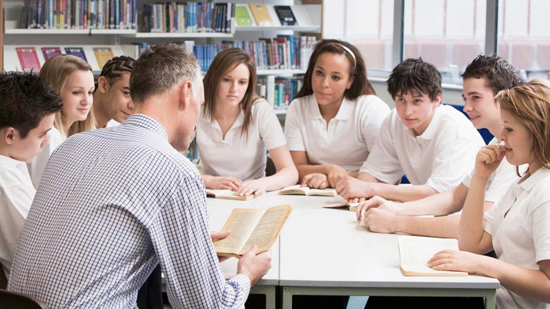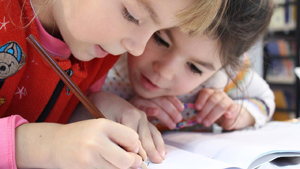In today’s ever-evolving world, alternative education has become a crucial topic of discussion. With traditional educational systems sometimes falling short in meeting the needs of diverse learners, alternative education offers a fresh and innovative approach to learning. Whether it’s homeschooling, online education, Montessori, or other non-traditional methods, this form of education provides flexibility and personalized experiences for students.
The importance of alternative education lies in its ability to cater to different learning styles, interests, and aptitudes that may not fit within the rigid structure of traditional schooling. It empowers students to take control of their learning journey while nurturing their individual strengths and passions. By promoting critical thinking, creativity, and problem-solving skills, alternative education prepares students to thrive in an ever-changing world.

Image by freepik
Alternative education also emphasizes holistic development, fostering a well-rounded individual who is not just academically competent but also socially, emotionally, and physically adept. It encourages experiential learning, allowing students to explore real-world applications of knowledge and develop essential life skills.
In this article, we will delve into the reasons why alternative education plays a vital role in shaping tomorrow’s leaders and why it’s worth considering as an educational option for every student.
What is alternative education?
Alternative education refers to non-traditional methods of education that deviate from the conventional classroom-based learning. It encompasses a range of approaches that prioritize flexibility, personalized learning experiences, and individualized support. While traditional education follows a standardized curriculum, alternative education focuses on tailoring the learning process to meet the unique needs of each student.
Limitations of traditional education
Traditional education, although widely implemented, has its limitations. The one-size-fits-all approach may not effectively cater to the diverse learning styles and interests of students. Some students may struggle to grasp concepts in a traditional classroom setting, leading to disengagement and academic underachievement. The rigid structure and standardized testing can stifle creativity and critical thinking, hindering students from reaching their full potential.
Benefits of alternative education
Alternative education offers numerous benefits that address the limitations of traditional education. One of the key advantages is its ability to cater to different learning styles, allowing students to learn at their own pace and in a way that suits their individual needs. This personalized approach fosters a deeper understanding of concepts and encourages students to take ownership of their learning.
Alternative education promotes creativity and critical thinking by encouraging students to explore and think outside the box. It provides opportunities for hands-on learning, problem-solving, and real-world applications of knowledge. This cultivates skills that are essential for success in the modern workforce, where adaptability and innovation are highly valued.
Alternative education also places a strong emphasis on holistic development. It recognizes the importance of nurturing not just academic abilities but also social, emotional, and physical well-being. By integrating these aspects into the learning process, alternative education creates a well-rounded individual who is better prepared to navigate the complexities of life.
Types of alternative education
Alternative education encompasses a wide range of approaches, each with its own unique characteristics and methodologies. Some common types of alternative education include:
Homeschooling: This approach involves parents or guardians taking on the role of educators, providing instruction at home. It allows for personalized learning and a flexible curriculum tailored to the child’s interests and abilities.
Montessori: Developed by Maria Montessori, this method focuses on hands-on, experiential learning. It encourages independent thinking, self-directed learning, and the development of practical life skills.
Waldorf: Waldorf education emphasizes creativity, imagination, and the arts. It integrates academic subjects with artistic and practical activities to foster holistic development.
Online education: With the advancements in technology, online education has gained popularity. It provides flexibility in terms of time and location, allowing students to access quality education from anywhere in the world.
Examples of successful alternative education models
There are numerous successful alternative education models that have proven to be effective in nurturing students’ growth and development. One such model is the Sudbury Valley School, which follows a democratic approach to education. Students have the freedom to choose what they learn, how they learn, and when they learn. This fosters a sense of responsibility, independence, and self-motivation.
Another example is the High Tech High network of schools, which focuses on project-based learning and real-world applications. Students engage in hands-on projects that allow them to apply their knowledge and skills to solve complex problems. This model promotes collaboration, critical thinking, and creativity, preparing students for the demands of the 21st-century workforce.
Alternative education and personalized learning
Personalized learning is a fundamental aspect of alternative education. It recognizes that each student has unique strengths, weaknesses, and learning styles. By tailoring the learning experience to meet individual needs, personalized learning maximizes student engagement and achievement.
Alternative education approaches, such as homeschooling and Montessori, provide the flexibility and resources necessary for personalized learning. Students have the freedom to explore their interests, set their own pace, and delve deeper into subjects that capture their curiosity. This fosters a love for learning and allows students to reach their full potential.
Role of alternative education in fostering creativity and critical thinking
Creativity and critical thinking are essential skills for success in the 21st century. Alternative education approaches place a strong emphasis on developing these skills by encouraging students to think independently, solve problems creatively, and approach learning from different perspectives.
In alternative education settings, students are given the freedom to explore their passions and interests. This fosters curiosity and a sense of ownership over their learning, leading to increased engagement and motivation. By encouraging innovative thinking and providing opportunities for hands-on learning, alternative education nurtures the creative and critical thinking abilities of students.
Challenges and misconceptions of alternative education
Despite its numerous benefits, alternative education also faces challenges and misconceptions. One of the main challenges is the lack of standardized assessment and accreditation systems. This can raise concerns about the quality of education provided in alternative settings. However, many alternative education models have developed their own evaluation methods that focus on holistic development and real-world application of knowledge.
Another misconception is that alternative education isolates students from social interactions. While alternative education may not follow the traditional classroom setting, it often provides ample opportunities for socialization through group activities, community involvement, and collaboration with peers.
How to support alternative education initiatives?
To support alternative education initiatives, it is important to raise awareness about the benefits and effectiveness of alternative approaches. This can be done through advocacy, sharing success stories, and promoting research on alternative education. Additionally, policymakers and educational institutions should consider integrating alternative education principles and methodologies into mainstream education to provide more diverse learning opportunities for all students.
Future of alternative education
Alternative education plays a vital role in shaping tomorrow’s leaders. It offers a fresh and innovative approach to learning that caters to diverse learning styles, fosters creativity and critical thinking, and promotes holistic development. As the world continues to evolve, alternative education will become increasingly important in preparing students for the challenges and opportunities that lie ahead.
By embracing alternative education and its principles, we can create a more inclusive and effective educational system that empowers every student to reach their full potential.
Alternative education is not just an alternative; it is a necessary and valuable component of the educational landscape. It provides students with the tools and opportunities they need to thrive in a rapidly changing world. By embracing alternative education, we can create a brighter future for our children and ensure that they are prepared to navigate the challenges and seize the opportunities that await them.




